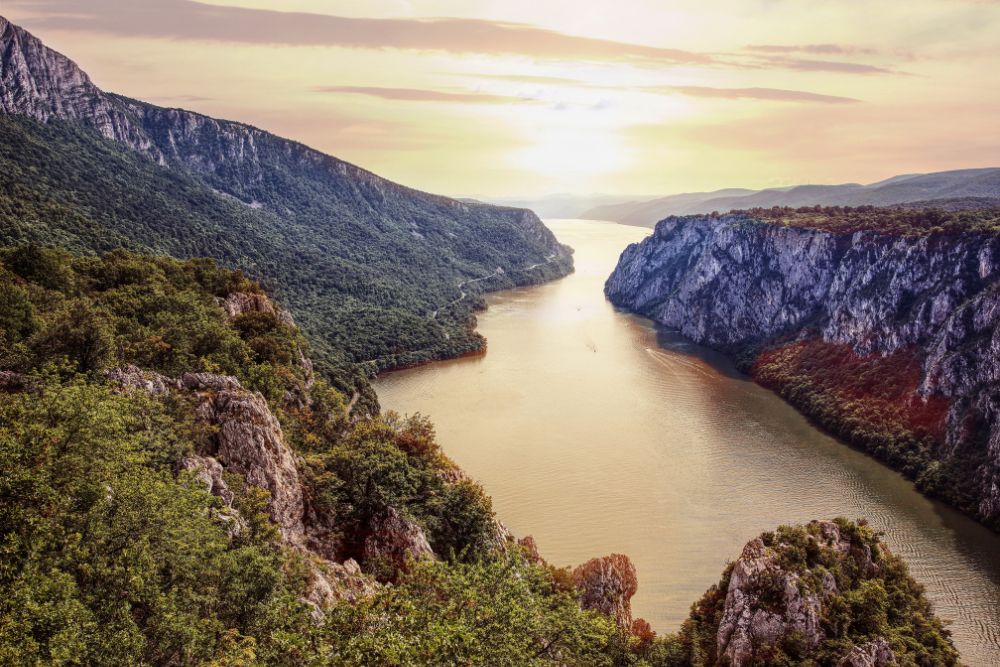Serbia is a fascinating place. Home to ancient roman ruins and islands that float on water, it is a destination that took me completely by surprise.
I’ve gathered 19 of the most fun Serbian facts so you can get a little taste of what this charming country has to offer!
1. Serbia Has a Forbidden Rainforest
The Vinatovaca Rainforest is hundreds of years old and it is considered a natural wonder. People aren’t allowed to touch or cut down any part of it.
Even if trees fall through natural forces, they are left on the ground where they lay. This 37-acre rainforest is curated by nature alone.
2. A Serbian River Called “Year”
There is a Serbian river that is exactly 365 meters long and was appropriately nicknamed “Year” because a year has 365 days.
I feel like this was a dad joke that people liked enough to make it official.
3. Serbia Exports a Lot of Raspberries
Serbian soil is great for growing raspberries! Serbia is one of the top exporters of raspberries and in 2012 Serbia was responsible for 94% of the world’s supply.
In 2021, the Serbian raspberry yield was 70,000 metric tons. The price of raspberries is skyrocketing worldwide due to low global supply, so you may want to eat your fill on your next trip to Serbia!
4. The Derdap Gorge is the Largest in Europe
The Derdap gorge is a part of the Derdap National Park in Eastern Serbia and is 100 kilometers (62 miles) long.
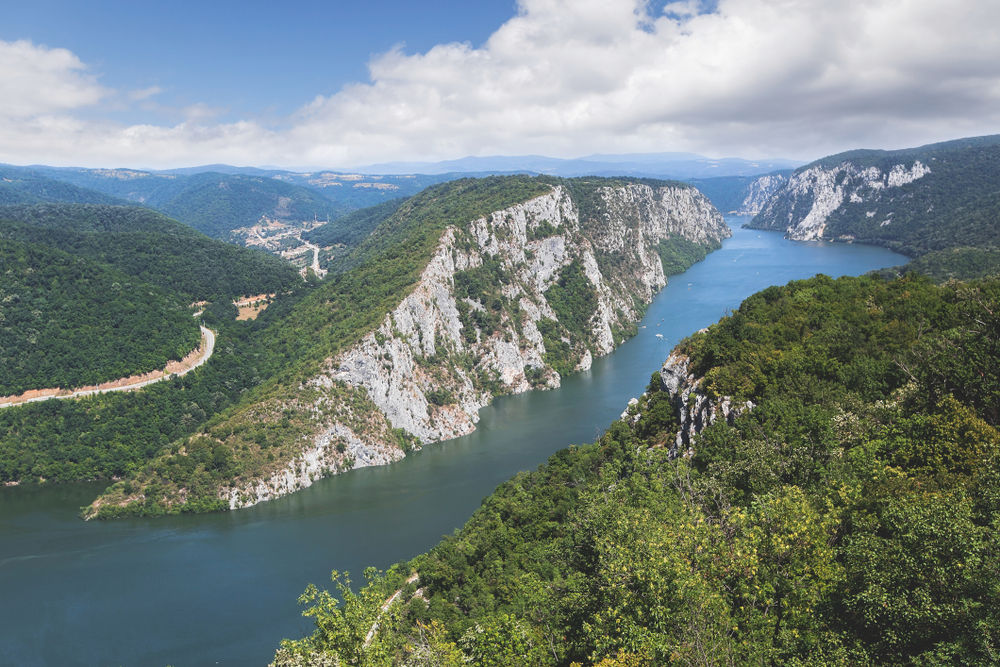
The Danube river flows through the center of the gorge and is said to reflect the sunset perfectly, giving a surreal ambiance that is perfect for photographers looking to capture a special shot.
5. Serbian People Invented the World’s First Clock
This may be news to Switzerland but the first mechanical clock in the world was invented by a Serbian man named Lazar the Hilandarian or Lazar the Serb. He was a Serbian Orthodox monk as well as a horologist and he invented the first known public mechanicalized clock in 1404.
The Swiss weren’t making clocks until the 1600s!
6. Serbians Were Integral to the Success of the Apollo Missions
Did you know that the NASA engineer who first heard “Houston, we have a problem” was a Serbian engineer named David Vujić?
7 Serbian scientists were involved in NASA’s Apollo missions including Apollo 11 which successfully landed on the moon.
These scientists were all involved with the space program and helped the missions to succeed:
- David Vujić,
- Slavoljub Vujić
- Milojko Vučelić
- Danilo Bojić
- Pavle Dujić
- Petar Galović
- Milisav Šurbatovi
7. Belgrade Voted Best Nightlife in Europe
Lonely Planet declared that the city of Belgrade has the best nightlife of any European city. This fact may be subjective because there are a lot of great nightlife cities in Europe.
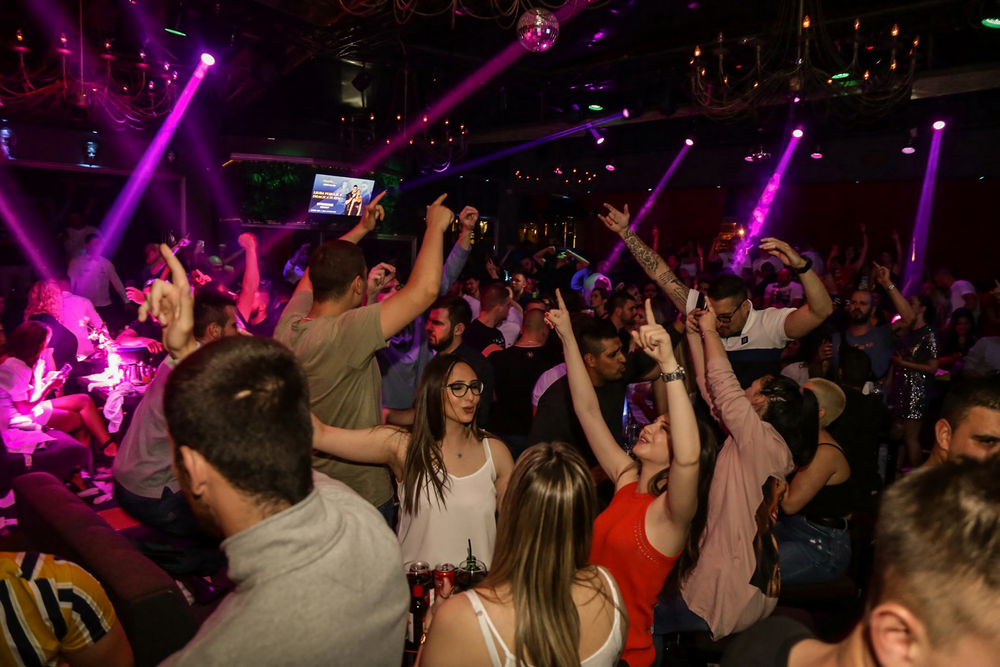
What is clear is that no matter the time, there is always somewhere to dance, drink, and meet people!
8. Tallest Stone Gates in Europe
If you ever wanted to experience what it’s like to be a fairy, stand next to the Prerasts of Vratna. These are the largest natural stone arches/bridges in the entirety of Europe.
They are called the Monastery Gates because of their proximity to the Vratna monastery.
There are three of them in total, and they were formed by natural processes. Visitors are sure to appreciate their sheer size – the small gate is 34 meters tall and 15 meters wide while the largest is 45 meters in length and 26 meters in height!
9. Serbians May Give You Three Fingers
Don’t worry, this isn’t like flipping someone “the bird”.
The three-finger gesture including the thumb, pointer, and index finger is a positive social gesture. Visitors to Serbia displaying it will win over the locals as it roughly translates to loving the country.
10. Best Reported Vampire Hysteria Case in Serbia
If you think Dracula was the world’s first vampire that caused a village to freak out, you’d be mistaken. The best reported and earliest documented case of Vampire hysteria in Europe took place in Serbia.
A peasant named Peter Blagojevic passed away and his son claimed that Peter appeared and demanded food from him three days after. The son refused and soon was found dead. Nine other villagers died as well – all of them claiming to have dreamed about Peter before they met their ends.
This caused public panic and Peter’s body was exhumed from the grave. Witnesses claimed that he had blood around his mouth.
Officials staked and then burned Peter’s body as he was proclaimed a vampire. The news spread far and wide through Europe, as sensational as it was.
It’s a shame they couldn’t diagnose and treat Tuberculosis in the early 1700s.
11. Rakia Is Alcoholic Rocket Fuel
Rakia is a Serbian alcoholic beverage, traditionally made with plums but it can also be made with other fruit such as quince and apricots.
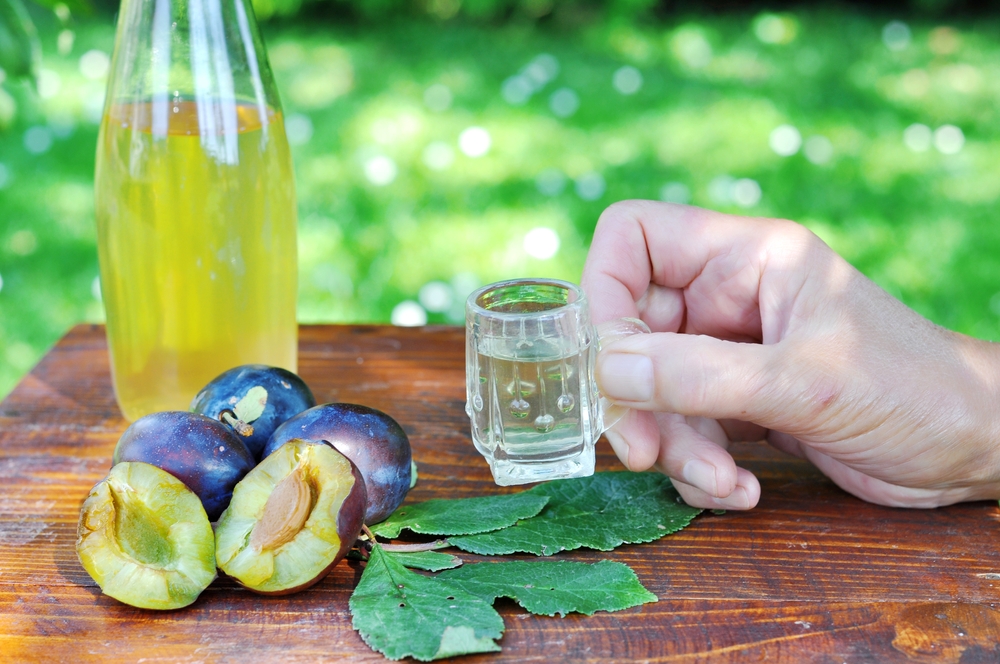
Commercial Rakia is 40% alcohol but homemade versions can have up to 65% alcohol. If you want to try this local beverage, consume responsibly!
12. Insects Dance on Water in Serbia
The Tisza River is a special place in June. It is the location where Palingenia Longicauda insects appear to dance on top of the water for a single day – the last day of their lives.
This species lives underground for three years, existing solely to mate on a warm summer day when the conditions are just right. Males die immediately after mating and females go back into the water to lay their eggs before passing away.
The lifecycle of this mayfly species is fleeting, and the dance they perform on the water makes it look like tiny raindrops are falling everywhere with the fluttering of their wings.
13. Serbia Experiences Earthquakes
Most Serbian earthquakes are moderate – the worst recorded earthquake occurred in the 1980s and was a 5.8 magnitude.
Visitors shouldn’t worry too much! Since 1950, there have only been 3 Serbian earthquake-related deaths.
14. Serbia Has a Devil’s Town
Southern Serbia is host to the Devil’s Town. Located near Kuršumlija, Đavolja varoš is a wonder known around the world because of its 202 odd rock towers which have been created by erosion.
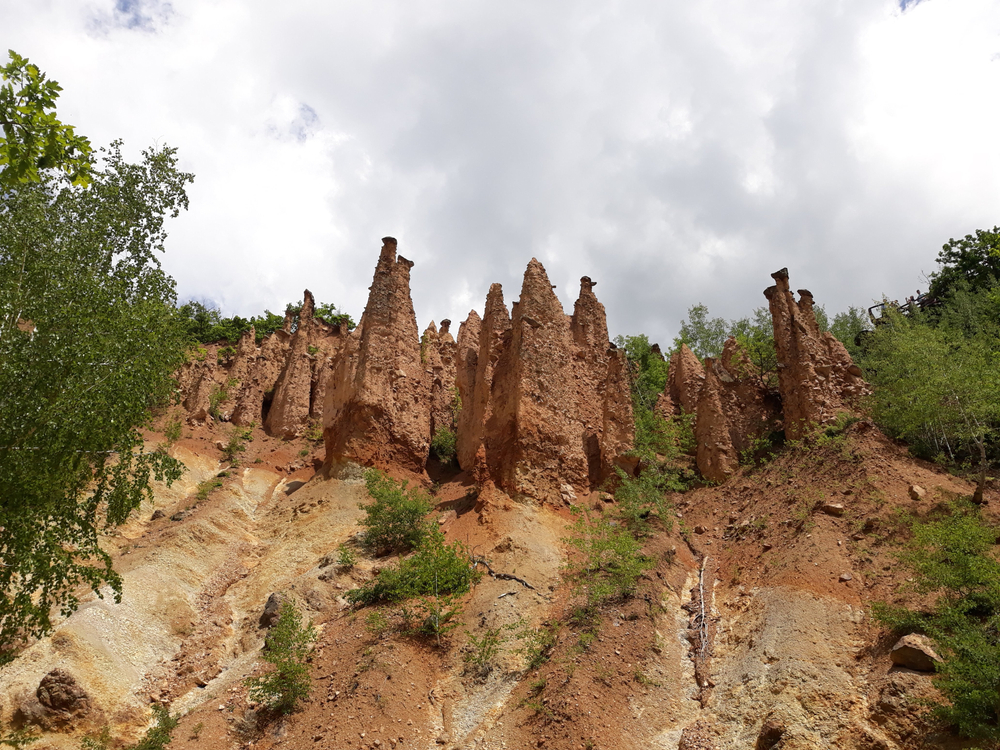
These formations look like devil’s horns and serve as one of the most photographed locations in Serbia!
15. The White Angel Fresco Video Transmission
The very first video transmission from Europe to America featured Serbian artwork.
Sent in 1963, an image of The White Angel Fresco from Mileševa monastery was the first image successfully sent to North America!
16. Home to the Mysterious Povlen Globes
Mt. Povlen in Serbia is home to numerous, round-shaped rocks. They lay in seemingly random locations and vary in size, but all of them are perfectly geometric.
Locals are divided about the origins of the globes, and their purpose. One side believes they have healing powers from nature itself while others claim they were deliberately placed by aliens.
Scientists disagree and believe that they are simply the product of natural geological processes and volcanic activity.
17. Staying Connected in Serbia
The number of households using the internet has grown considerably in Serbia in the last decade.
As of 2011 only half of the population used the internet, but data from 2020 shows that close to 80 percent of households are now connected!
18. Serbia is a Landlocked Country
It may be landlocked, but it has plenty of cool neighbors.
Serbia is centrally located with easy access to Croatia, Hungary, Bulgaria, Macedonia, Albania, Montenegro, and Romania!
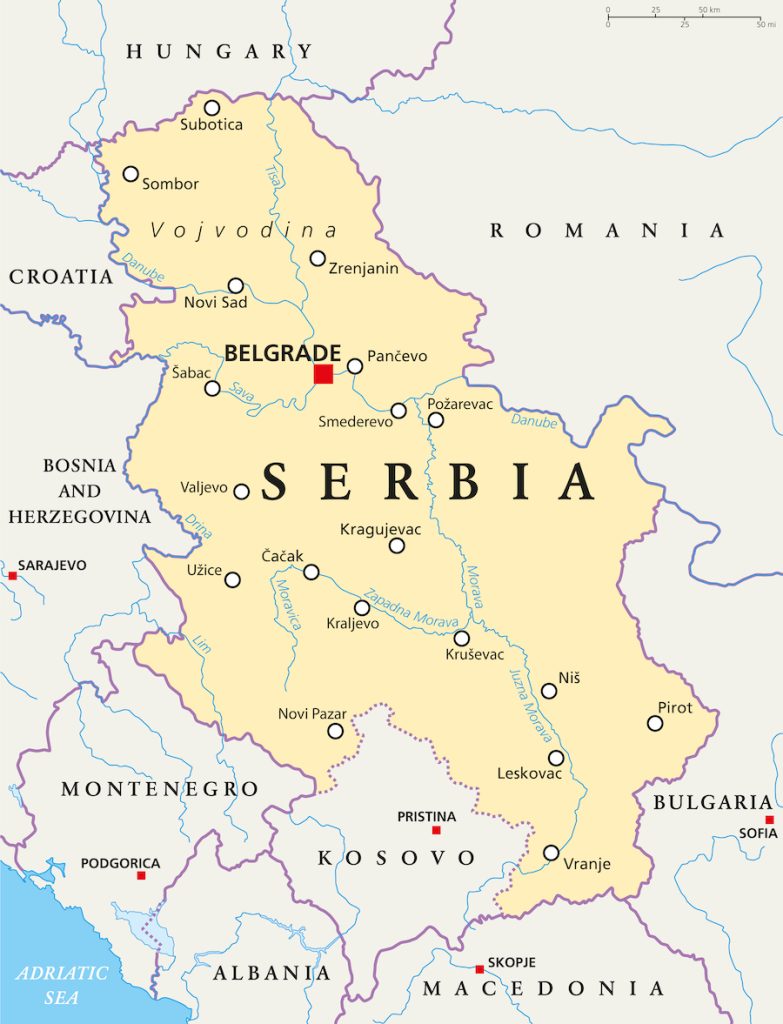
If you simply have to work on your tan, visit one of Serbia’s beautiful lakes! My favorite is Lake Perućac for the beautiful forest-covered mountains surrounding it.
19. Serbia is Home to the World’s Most Expensive Cheese
As a cheese-eating connoisseur, I would be remiss in not talking about Pule, or Magareći Sir.
This cheese is made from donkey’s milk and goat’s milk and is the most expensive cheese on earth. When I first heard about this cheese, I scoffed. How pricey can cheese be?
The answer was shocking.
Pule costs $600 per pound.
This cheese is made on one small farm in Serbia, and nowhere else. The taste is said to be mild, clean, and sweet while being somewhat reminiscent of a young Manchego.
I can’t claim to have tried it – I still need a roof over my head at the end of the month.

